Elections of STOREP officers (President, Secretary, Members of the Executive Committee, Auditors, and, in a separate ballot, Young Scholars Representative) for the next triennium will be held between 17 and 31 March, 2018.
Only current members (that is, scholars who have become member in 2018 or renewed their membership for the current year) shall be entitled to vote. Memberships can be renewed by following the instructions at this link.
Voting instructions will be posted on this website and notified to members shortly.
Here below is the list of candidates, with profiles and photos.
* * *
PRESIDENT
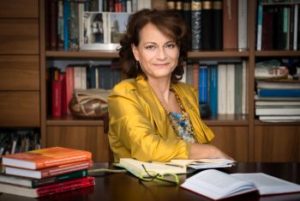 Antonella Stirati (Università di Roma Tre)
Antonella Stirati (Università di Roma Tre)
Antonella Stirati is currently Full Professor of Economics at Roma Tre University. She studied economics at the University of Siena (laurea in Scienze Economiche), Cambridge (M.Phil degree) and La Sapienza (PhD). She has been a member of the STOREP Executive Committee for the years 2015-2018.
Her research interests particularly in the fields of employment theories, income distribution and wages, macroeconomics and growth, the effects of technical innovations. She has published a book on The Theory of Wages in Classical Economics (Elgar, 1994), co-edited Sraffa and the Reconstruction of Economic Theory (3 volumes, Palgrave-Macmillan, 2013) and published a number of articles on international academic journals (including Cambridge Journal of Economics, European Journal of the History of Economic Thought, Review of Political Economy) and collected volumes. Her article on Inflation, Unemployment and Hysteresis has been selected as one of the best 25 articles published in the Review of Political Economy since the journal was first issued.
In 2017 she coordinated a research project funded by the Institute of New Economic Thinking (INET) on the persistent effects of autonomous demand expansions on GDP and key labour market variables.
She teaches macroeconomics for undergraduates and a course on Employment, Income Distribution and Growth in the master (laurea magistrale) degree. Besides teaching and research she is active in and public debates on current issues and co-edits the Italian on-line magazine Economia e Politica.
* * *
SECRETARY-GENERAL
 Mario Cedrini (Università di Torino)
Mario Cedrini (Università di Torino)
Mario Cedrini (born 1977) is Assistant Professor in Economics at Università di Torino, Italy, where he teaches macroeconomics, international economics, economic anthropology, history of economic thought and economic methodology.
His work has mainly focused on Keynes’s thought, “method”, and suggestions for global reform; his current research project, using data mining techniques, and financed by an ESHET grant in 2015, is on the evolution and (possible destiny of) fragmentation of economics, a topic he has already explored in a theoretical article published in 2017 (“Just Another Niche in the Wall? How Specialization is Changing the Face of Mainstream Economics”, with M. Fontana, Cambridge Journal of Economics).
Assistant editor of History of Economic Ideas and editor of The Annals of the Fondazione Luigi Einaudi, he has recently published Economics as Social Science. Economics Imperialism and the Challenge of Interdisciplinarity (with R. Marchionatti, Routledge 2017), and Secondo Keynes. Il disordine economico internazionale e le speranze di una nuova Bretton Woods (with A. Carabelli, Castelvecchi 2014).
He has been Secretary-General of the Italian Association for the History of Political Economy for the years 2015-2018.
* * *
EXECUTIVE COMMITTEE
 Angela Ambrosino (Università di Torino)
Angela Ambrosino (Università di Torino)
Angela Ambrosino is adjunct professor of Microeconomics and Macroeconomics at the University of Turin.
STOREP Member since the Association’s first conference in 2004, member of the Executive Committee for the years 2015-2018. She is a member of the scientific committee of the Fondazione Benvenuti in Italia (Bit), Turin (since 2015) and of the scientific committee of the Turin School of Local Regulation, Fondazione Tebaldo Fenoglio (since 2012).
Her areas of specializations are Institutional economics, history of economic thought and economic methodology. She is currently working in a research group that applies data mining techniques to uncover some salient traits of the evolution of economics over time, and possibly offer insights about its current state.
Among her recent publications are “Shifting Boundaries in Economics: The Institutional Cognitive Strand”, Journal of Economic Surveys, 2018 (with M. Fontanta and A. Gigante), “and Heterogeneity and Law: Toward a Cognitive Legal Theory”, Journal of Institutional Economics, 2017.
 Maurizio Caserta (Università di Catania)
Maurizio Caserta (Università di Catania)
Maurizio Caserta is Full Professor of Economics at the University of Catania in Sicily. He was educated in Italy (University of Catania and University of Naples) and England (Cambridge University and UCL).
He has published in the field of methodology, economics of institutions, growth and finance. He sits in the Board of Fondazione Sicilia and in the Advisory Board of Unicredit Sicilia.
His latest publications include: “Accidental politicians: how randomly selected politicians can improve parliament efficiency”, Phisica A, 2011 (with A. Pluchino, A. Rapisarda, C. Garofalo, S. Spagano); “Are bad firms beneficial to growth?”, The Manchester School, 2012 (with F. Reito); “The social dimension of entrepreurship: the role of regional social effects”, Entrepreneurship Research Journal, 2012 (with L. Bonaventura); “L’efficienza del caso”, Le Scienze, Ed. Italiana di Scientific American, 2013 (with A. Pluchino, A. Rapisarda, C. Garofalo, S. Spagano); “Outreach and Mission Drift in Microfinance: An Interpretation of the New Trend”, Economics Bulletin, 2013 (with F. Reito); “Minimum taxation as a luxury good”, Economia Politica, 2015 (with F. Reito), “Le Università siciliane”, in Università in declino, ed. by G. Viesti, Donzelli, 2016; “The trade-off between profitability and outreach in microfinance”, Economic Modelling, 2018 (with S. Monteleone, F. Reito).
 Mario Morroni (Università di Pisa)
Mario Morroni (Università di Pisa)
Mario Morroni is Professor of Economics at the University of Pisa and Life member of Clare Hall, College for Advanced Study, University of Cambridge (G.B.).
He authored a book on technical change and production processes (Cambridge University Press, 1992), which received the Myrdal Prize, and a book on the theory of the firm (Cambridge University Press, 2006).
He is author of several works in the areas of microeconomics, macroeconomics, labour economics and industrial economics. He has recently published a book (Imprimatur, 2016) with nine dialogues among economists with different theoretical positions on the consequences of neoliberal economic policies that have been implemented over the last thirty years. The dialogues discuss increasing inequality, the rolling back of welfare systems, the relationship between the state and the market, the Eurozone crisis, environmental degradation, and the industrial policies in the face of globalization.
Among other recent publications are “Production of commodities by means of processes. The flow-fund model, input-output relations and the cognitive aspects of production”, Structural Change and Economic Dynamics, 2014; “Incentive-based and knowledge-based theories of the firm: Some recent developments”, Economia e Politica Industriale – Journal of Industrial of Business Economics, 2010 (with N. Meccheri), “Energy transition towards economic and environmental sustainability: feasible paths and policy implications”, Journal of Cleaner Production, 2010 (with S. D’Alessandro and T. Luzzati).
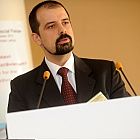 Paolo Paesani (Università di Roma “Tor Vergata”)
Paolo Paesani (Università di Roma “Tor Vergata”)
Paolo Paesani (born 1973) is Associate Professor of Economic Policy at Università degli Studi di Roma “Tor Vergata”, Italy, where he teaches Macroeconomics, Economic policy, Global economics, History of economic thought.
His recent work focuses on postwar macroeconomic and monetary theory; his current research project Unconventional monetary policy ante litteram (financed by an ESHET-ECB grant 2015) aims to reconstruct key episodes in the postwar debate on inflation, liquidity and monetary policy, focusing on Britain and continental Europe between the 1940s and the 1960s.
He has recently published “Vicarelli, Keynes, and the unstable nexus between investment, liquidity, and finance” (Journal of Post Keynesian Economics, 2017) and “Price stability and the origins and early influence of the Phillips curve on British policy debates “ (with C. Cristiano, History of Political Economy, 2018). He is a member of the Italian Association for the History of Political Economy (STOREP), European Society for the History of Economic Thought (ESHET), and Associazione per la Storia Economica (ASE).
 Antonella Palumbo (Università di Roma Tre)
Antonella Palumbo (Università di Roma Tre)
Antonella Palumbo, PhD in economics at Sapienza University of Rome, is Associate Professor of Economics at Roma Tre University.
She published articles in various journals (among which Review of Keynesian Economics, Review of Political Economy, European Journal of the History of Economic Thought), and in collective volumes.
She co-authored the 3-volume book Sraffa and the Reconstruction of Economic Theory (Palgrave Macmillan, 2013) and is one of the managing editors of the Centro Sraffa Working Papers.
She has been visiting professor at Korea University, Seoul and Universidad Nacional Autónoma de México, Mexico City.
Her research interests are in the theory of value and distribution and in the theories of demand-led growth. She contributed to the theoretical analysis of the Classical-Keynesian approach (aiming to found a Keynesian analysis of output and growth on the classical theory of value and distribution). Her work deals with exports and growth; Kaldorian models of growth; criticism to steady-growth models; theoretical and empirical analysis of potential output; empirical measures of full employment; Phillips curve.
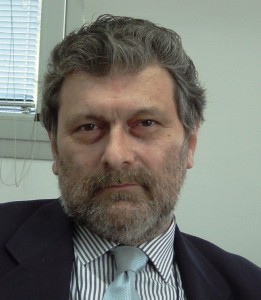 Andrea Salanti (Università di Bergamo)
Andrea Salanti (Università di Bergamo)
Andrea Salanti is Professor of Economics at the University of Bergamo. His works in the field of history and methodology of economics have been published in journals such as Metroeconomica, Journal of Post Keynesian Economics, Kyklos, History of Political Economy, Economics and Philosophy, Revue Internationale de Philosophie, Journal of Economic Methodology, Research in the History of Economic Thought and Methodology, Ricerche economiche, as well as in various collective volumes.
Conferences organized at the University of Bergamo led to the publication of volumes edited with E. Screpanti (Pluralism in Economics, E. Elgar, 1997), R. Backhouse, D. Hausman and U. Mäki (Economics and Methodology: Crossing Boundaries, Macmillan, IEA Series, 1998), R. Backhouse (Macroeconomics and the Real World, 2 vols, Oxford University Press, 2000).
In 2014 he hosted the 11th annual STOREP conference in Bergamo. He has been a member of the STOREP executive committee for the years 2015-2018.
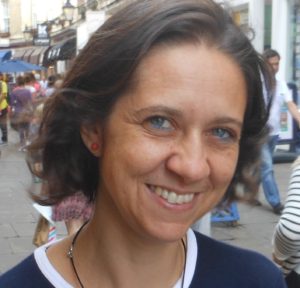 Eleonora Sanfilippo (Università di Cassino e del Lazio Meridionale)
Eleonora Sanfilippo (Università di Cassino e del Lazio Meridionale)
Eleonora Sanfilippo, PhD in Economics at the University of Siena (2000). She is Associate Professor of Economics at the Department of Economics and Law, University of Cassino and Southern Lazio. She actually teaches there macroeconomics and history of economic thought courses, both in Italian and English.
She regularly participates to international conferences on her fields of interests, presenting her papers and discussing papers of others. She was invited speakers in seminars abroad (e.g. at the Robinson College, Cambridge, UK, 2012; Sophia University, Tokyo and Hitotsubashi University, Tachikawa, 2006 and 2015).
Her research interests mainly concern: (i) Keynes’s theory and practice as an investor and speculator, (ii) Cambridge economists; (iii) methodology in macroeconomics and (iv) consumption theory, in both micro- and macroeconomic analysis.
Besides papers appearing in Cambridge Journal of Economics and History of Political Economy, she has also published articles in the following Journals: European Journal of the History of Economic Thought, Journal of Economic Psychology, Review of Political Economy, History of Economic Ideas, and History of Economic Thought and Policy. For several of these Journals, she has also acted as reviewer and referee. Since 2014, she has been a member of the ESHET Council.
 Rodolfo Signorino (Università di Palermo)
Rodolfo Signorino (Università di Palermo)
Rodolfo Signorino is Associate Professor in Economics at the Faculty of Law of the University of Palermo, where he teaches Economics.
His main research interests are in the history and methodology of economic analysis. He has published several articles on Classical and Sraffian economics in Italian and international Journals. He has also co-authored some chapters and entries in collective volumes. He has written with some co-authors the two-volume book Istituzioni di Economia Politica (Foundations of Economics), Giappichelli, 2008 (2nd edition), in Italian.
He is also a member of the Editorial board of the European Journal of the History of Economic Thought. His latest publications concern the issue of international trade and structural change within Classical economics.
 Riccardo Soliani (Università di Genova)
Riccardo Soliani (Università di Genova)
Riccardo Soliani is Ph. D. in Economics at the Università di Roma “La Sapienza”. He is a member of the Scientific Council of the Association Charles Gide pour l’étude de la pensée économique since June 2012. He is referee for Economies et Sociétés, Cahiers d’économie politique, History of Political Economy.
Since 2015-16, he is invited professor at the University of Lyon 2, where he yearly teaches Italian economic thought from the 18th to the 20th century. Since 2017 he is a member of Laboratoire Triangle – ENS – Lyon. He is a member of the board of the PhD School in Economics, Università di Genova.
Associate Professor of History of economic thought, which he teaches at the Department of Political Science, University of Genova, he is the coordinator of the degree in Political Science and Administration, University of Genova, since 2016.
 Claudia Sunna (Università del Salento, Lecce)
Claudia Sunna (Università del Salento, Lecce)
Claudia Sunna has a PhD in History of Economic Thought (University of Florence) and is Researcher of Economics at the University of Salento, Lecce (Italy). She has been a member of the STOREP Executive Committee for the years 2015-2018.
Her research interests include development and population theory in historical perspective, and labour and gender studies.
Among her recent publications are: “Antoine de Montchrétien and development economics”, History of Economic Thought and Policy, 2017; “Heterogenesis of ends: Herbert Spencer and the Italian economists”, 2017; The European Journal of the History of Economic Thought, 2016 (with M. Mosca); Development Economics in the XXI Century (ed., with D. Gualerzi), Abingdon: Routledge, 2016.
 Giulia Zacchia (Università La Sapienza, Roma)
Giulia Zacchia (Università La Sapienza, Roma)
Research fellow in Economics at the Department of Statistics of Sapienza University of Rome, where she collaborates with Minerva – Lab on Gender Diversity and Gender Inequality. She holds a PhD in History of economic thought from the University of Macerata (Italy).
Her research interests extend to social and financial inclusion in a gender perspective, but also cover gender gaps in academia, in particular in economics. She has worked in the banking and microfinance sectors. She is now expert about microfinance in the European EaSI TA program.
She is one of the co-founders and coordinators of the Working Group on Gender Economics for the Young Scholars Initiative of the Institute of New Economic Thinking (INET). She is also a member of the Gender Equality Committee of the Italian Economic Association (SIE).
* * *
AUDITORS OF THE ACCOUNTS
 Carlo Cristiano (Università di Pisa)
Carlo Cristiano (Università di Pisa)
Carlo Cristiano was born in Elba island, Italy, in 1973. He graduated in Philosophy from Pisa University in 2000 and obtained a PhD in the History of Economic Doctrines at the University of Florence, Faculty of Economics, in 2004.
Currently, he is Assistant Professor in Political Economy at the University of Pisa, Department of Law.
His major areas of research are the history of the Cambridge-Marshallian school, John Maynard Keynes and Keynesian economics, macroeconomic policy in the 1950s and ‘60s, the history of Italian economic thought in the twentieth century.
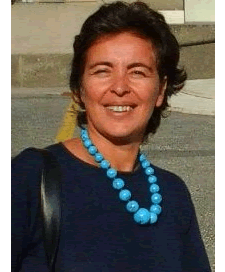 Antonella Rancan (Università del Molise)
Antonella Rancan (Università del Molise)
Antonella Rancan is Associate Professor of Economics at the Department of Economics of the University of Molise (Italy), where she teaches Economics and History of economic thought.
She is currently spending a research period at the Center for the History of Political Economy of Duke University, thanks to a Fulbright research scholar grant and the Center’s fellowship.
Her research interests are in the history of economics, especially postwar macroeconomics and macroeconometrics, monetary theories and policy.
She is writing a monograph on Franco Modigliani: Economics, Facts and Policy for Routledge.
 Enrico Petracca (University of Neuchâtel)
Enrico Petracca (University of Neuchâtel)
Enrico Petracca (1983) is postdoctoral researcher at the Institute of Economic Researches (IRENE) at the University of Neuchâtel (Switzerland). He earned a B.A. in Management from Bocconi University (Milan), and a M.Sc. in Economics from the University of Bologna (awarded the “Manlio Resta Prize 2010”, best Italian dissertation in Economics in 2010). He got a Ph.D. in “Science, Cognition and Technology” from the University of Bologna (Italy). He spent research periods at the University of Cambridge (UK) and Lausanne (Switzerland).
As Adjunct Professor at the Department of Law of the University of Pisa, in 2016 he taught the course “The Cognitive Foundations of Economics”. His research interests are in the methodology of bounded rationality, with particular concern for the connection between economic rationality and cognitive psychology.
His publications have appeared, among others, in the Journal of Economic Methodology, Sistemi Intelligenti, and Mind & Society.
He is currently a member of the STOREP Executive Committee in his quality of Young Scholars representative.
* * *
YOUNG SCHOLARS REPRESENTATIVE
 Michela Ciccotosto (Università di Torino)
Michela Ciccotosto (Università di Torino)
Michela Ciccotosto is a student at the University of Turin, where she is completing her master’s degree in Cooperation, Development and Innovation in the Global Economy, and presenting a thesis on the importance of pluralism in economics and of its implementation in economics courses in the academy. Concluding this work is a survey submitted to Economics students, that asks about their satisfaction with their education: higher marks were given by students who in class learnt about alternative theories inside the discipline – which happened mainly in interdisciplinary courses and courses of history of economic though. These findings match her conviction that there is a need to further examine economics courses and promote a stronger presence of the history of economic thought in them. She co-founded Rethinking Economics Torino – branch of an international network that promotes a pluralist and an interdisciplinary approach to economic questions –, which gave her the opportunity to engage with other associations sharing the same values, like STOREP, and to collaborate in drafting the survey for the Festival for the New Economic Thinking: all this inspired her to wanting to do more with respect to the mission of this Association.
